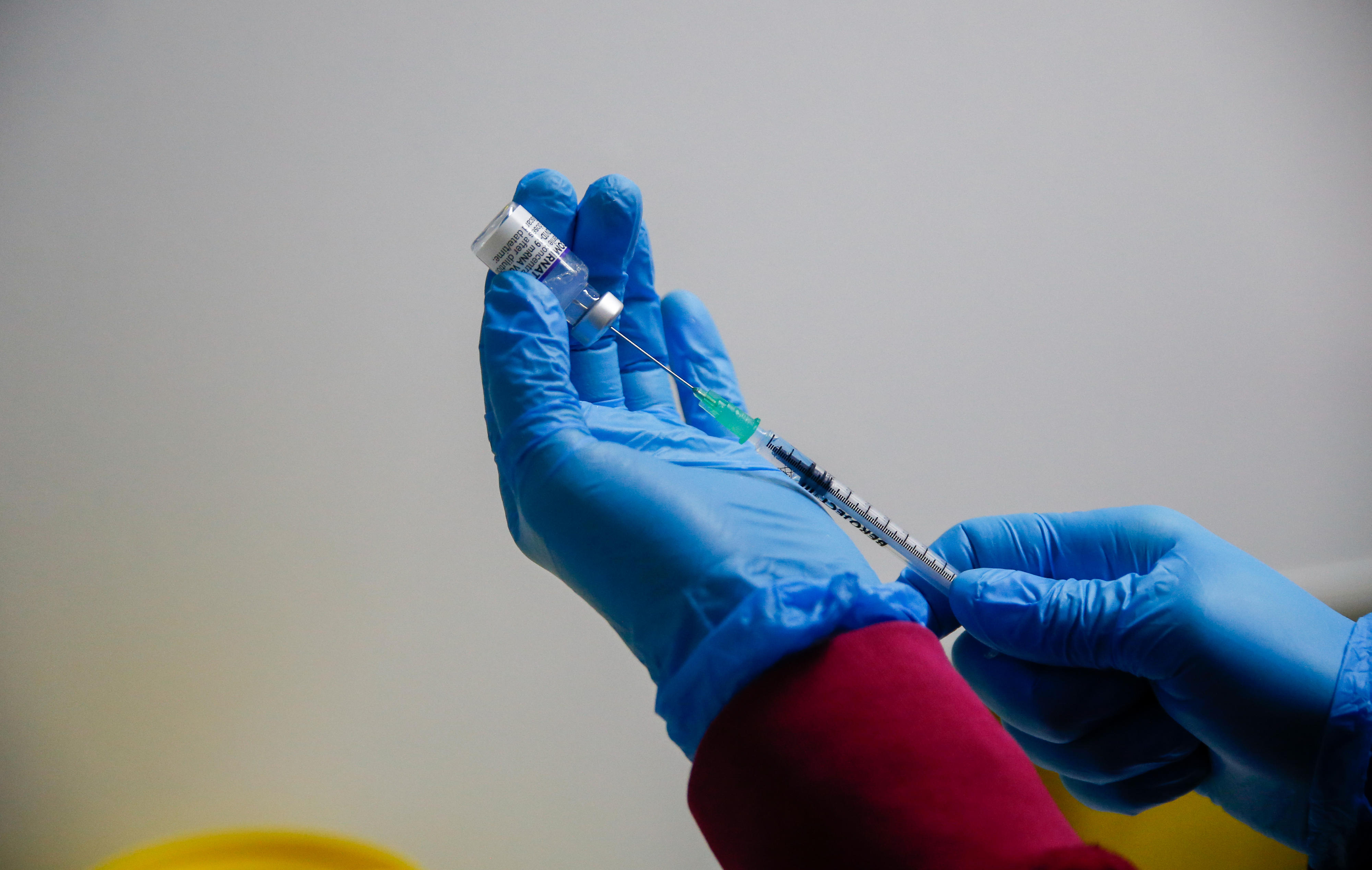Generic image: A COVID-19 vaccine is drawn into a syringe
Copyright© Leon Kuegeler/photothek.de
Special funds for vaccine logistics Tanzania: Vaccination by motorcycle taxi
In terms of size, Tanzania is the largest country in East Africa. In purely arithmetic terms, the number of people per square kilometre is 74 – in Germany it is 232. Here as there population numbers are unevenly distributed regionally. While almost 40 per cent of Tanzania's inhabitants live in cities, the other 60 per cent are spread over an area that is almost three times the size of Germany. This poses a major challenge for access to health services, medicines and vaccines.
Tanzania has long been a partner country of German development cooperation; one focus being the expansion of the health system. One weakness is the country’s patchy infrastructure – including a poorly developed road network – but also the lack of well-trained medical staff. Vaccinating 40 million people as quickly as possible against a globally rampant virus like COVID-19 has posed considerable problems for the country.
How do the vaccines get to the people?
As in many countries, the fight against the COVID-19 pandemic in Tanzania was initially slowed down by misinformation and a lack of political will. The country's former head of government, John Magufuli, downplayed the danger of COVID-19 for a long time; the East African country did not even report any official infection figures. When Samia Suluhu Hassan took over in March 2021 after Magufuli's death, she immediately changed the country’s course on COVID-19. Not only did she get vaccinated live on camera, she also promised her fellow citizens: “Anyone who wants the vaccination will get it.” The first COVID-19 vaccine doses arrived in Tanzania in July 2021.
“We had big problems storing and distributing the vaccines,” reports Mosses Lymo, the vaccination officer for the Songwe region in the southwestern highlands of Tanzania. For distribution, you need vehicles, personnel and above all an uninterrupted cold chain. The vaccine is sensitive, it must be continuously deep-frozen. Once a dose has thawed, it must be injected within six to eight hours. Finally, part of the solution was to have the vaccines distributed by motorcycle taxis in special transport cool boxes.
The GIZ-led Last-Mile project also included training for medical staff. The mobile vaccination teams were then able not only to administer injections, but above all to visit and advise risk groups at home.
Education campaigns increase willingness to get vaccinated
Even more difficult than managing the distribution logistically was convincing people to get vaccinated. “In the beginning, people were not willing to get vaccinated,” says clinic director Faith Matowo, explaining that there were too many rumours and false ideas about the effects of the vaccination – with men afraid of impotence and women of not being able to get pregnant.
Therefore, education campaigns were an important part of the Last-Mile project. It was important to convince the population in the project regions of Geita and Songwe that the vaccination was able to protect them from a severe case of COVID-19 and thus benefits their health.
The Last-Mile Initiative was launched by Germany during its G7 presidency in 2022. One million euros was provided from the initiative for the project in Tanzania. With this support, more than 400,000 people were vaccinated in Geita and Songwe.
But much more has changed for people on the ground, especially for the medical staff: “Just because the project is over doesn't mean we can't benefit from it anymore,” says Dr Sarah Kweyamba from the GIZ project partner Amref Health Africa (External link). These vaccination routines could be maintained. Because even without COVID-19, the Tanzanian health system has to face persistent challenges such as malaria and tuberculosis.
As at: 17/10/2023


